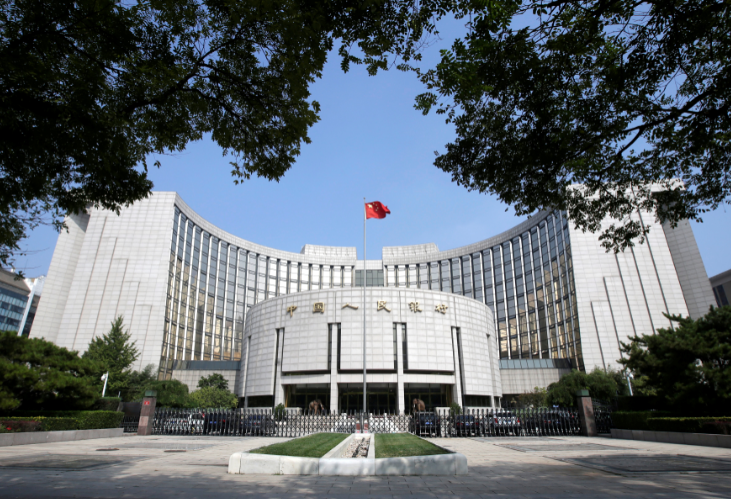Over 13% of China's financial institutions are being described as as "high risk," or in danger of defaulting on their loans, by the People's Bank of China (PBOC), the country's central bank.
A dismaying PBOC report released last week revealed the immense financial stress bearing down on China's leaders, particularly smaller banks. PBOC annual Financial Stability Report said 586 of the country's almost 4,400 banks as "high risk," a number higher than last year's. PBOC, the China Banking and Insurance Regulatory Commission (the banking sector regulator) and other regulators have long been raising the alarm about the risks of excessive corporate debt.
This heavy debt soared to a record 165% of the gross domestic product in 2018, estimates Bloomberg Economics. In 2017, China's corporate debt stood at 160.3% of GDP, the highest in Asia behind Hong Kong's.
China's corporate debt to GDP ratio (a measure of corporate leverage or debt) is now among the highest globally. It has jumped nearly 65 percentage points from 2008 to 2018, the fastest increase among major economies.
PBOC and CBIRC said they're forcing troubled banks to boost capital, slash bad loans, limit dividends and replace management. They've also revealed a package of measures encouraging mergers among smaller banks and enlisting local governments to support them.
China's Financial Stability and Development Committee chaired by Vice Premier Liu He on Nov. 28 called for more measures to bolster capital strength among smaller banks and craft a long-term mechanism to prevent and resolve risks. Also last week, CBIRC said more efforts should be made to protect shareholders, especially retail investors. It also called for closely monitoring liquidity and credit risks in China's capital markets.
In another sign financial authorities are now more worried about downside risks to the economy from too much debt, China's Ministry of Finance last week revealed it had ordered local governments to accelerate the issuance of debt earmarked for infrastructure projects.
The PBOC report also underscored the dangers stemming from higher consumer debt. PBOC said household debt as a percentage of disposable income jumped to 99.9% in 2018 from 93.4% in 2018.
Despite the massive debt problem, investors seem confident Beijing's policymakers can manage the country's financial risks while keeping the economy afloat. There are signs, however, of unresolved investor angst. A sudden drop in Hong Kong stocks Friday spread to China's twin exchanges. The Hang Seng China Enterprise Index lost 2.6% amid nervousness over a lack of clear triggers for the slump.






